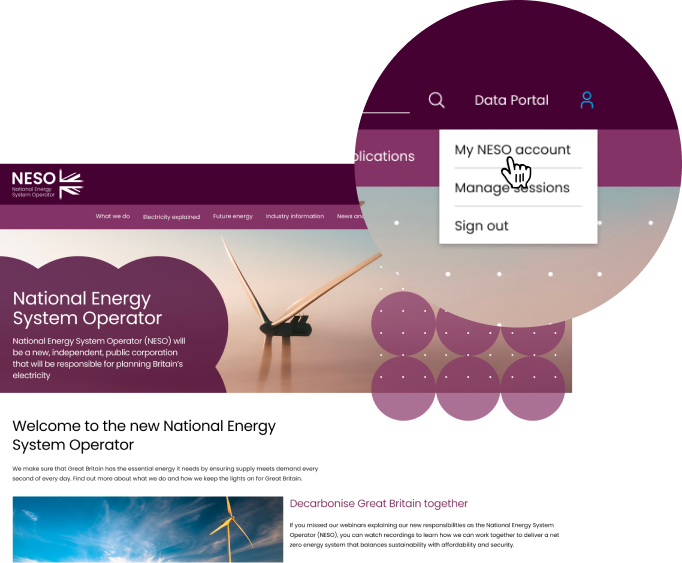A day in the life of: A Power System Manager
Keeping Great Britain supplied with the electricity it needs is a 24/7 operation. We’ve been speaking to ESO colleagues who are working to support the nation during the coronavirus pandemic. Here, Steve Wallace, Power System Manager at the ESO’s National Control Centre (ENCC), gives an insight into what COVID-19 has meant for him and his fellow control room colleagues.
So what does a Power System Manager do then?
I lead the team that operates the electricity system in real time. We balance the supply of electricity with demand second by second to keep the lights on for Britain. We are directly responsible for the transfer of power from source (where it is generated) to the Distribution Network Operators (who then feed it out to consumers via local networks) and this involves many interactions with various industry professionals during real-time processes. We work closely with business and industry to ensure that we maintain world class reliability – and are proud to say our system has a reliability rate of over 99.9%
How has coronavirus impacted your daily routine?
As I work in the ENCC I am classified as a key worker, so I have been attending work for my shifts as normal. We have two control rooms (one for backup purposes) and normally we’d work across both but now they are strictly segregated.
To reduce the risk of the virus spreading, all of us who work in the control rooms running 24/7 have been split into two teams, so we don’t encounter one another. During the week we work mornings 7am - 2pm, evenings 2pm - 9pm and nights 9pm - 7am. At weekends we work days 7am - 7pm and nights 7pm - 7am. Even our cleaners don’t move between the control rooms anymore.
It’s made everything feel very different onsite – there are almost no other day staff here as they’re working remotely, accessing all our systems and delivering their critical work from home.
During my time off like many other mums and dads I have become a part-time teacher at our kitchen table! Trying to keep my three children focused on their schoolwork has been interesting and I must admit I have had to resort to bribery on occasion!
What effect has coronavirus had on balancing the system?
We are keeping a close eye on the changes in the public’s use of electricity during the lockdown period to ensure that we can still deliver the electricity people need, when they need it. We’ve actually seen demand drop because lots of industrial activity isn’t happening, but we plan carefully for this, ensuring the right amount of power stations are on line to provide the system inertia required to operate a stable system. I take real pride in the fact that we are continuing to deliver for our customers at this challenging time.
You can read more about what we do to manage low demand periods on our website here.
Biggest changes you made since lockdown?
Like many others I have started to use Skype and FaceTime much more for communicating with family and friends and I am realising that I could have always done this!
Most of my family live up in the north west of England so it has been nice catching up with them in this way. Although I am still looking forward to visiting them when get through the lockdown period is over.
What does the future look like for you?
On the electricity front we all realise that this is an amazing time to be working in the electricity industry with so much change going on as we decarbonise our electricity system.
I have worked for National Grid for 13 years. I spent the first 6 years working as a planner managing before I moved into the control and becoming a Power System Manager in September 2019. So I have seen many changes but the developments that we intend to put in place to our real-time control systems in ENCC that will allow us to operate a carbon free electricity system by 2025 are what I am looking forward to the most.
Personally, I can’t wait for a return to my normal everyday routine with my family and friends and getting to see everyone face to face instead of through a screen!
